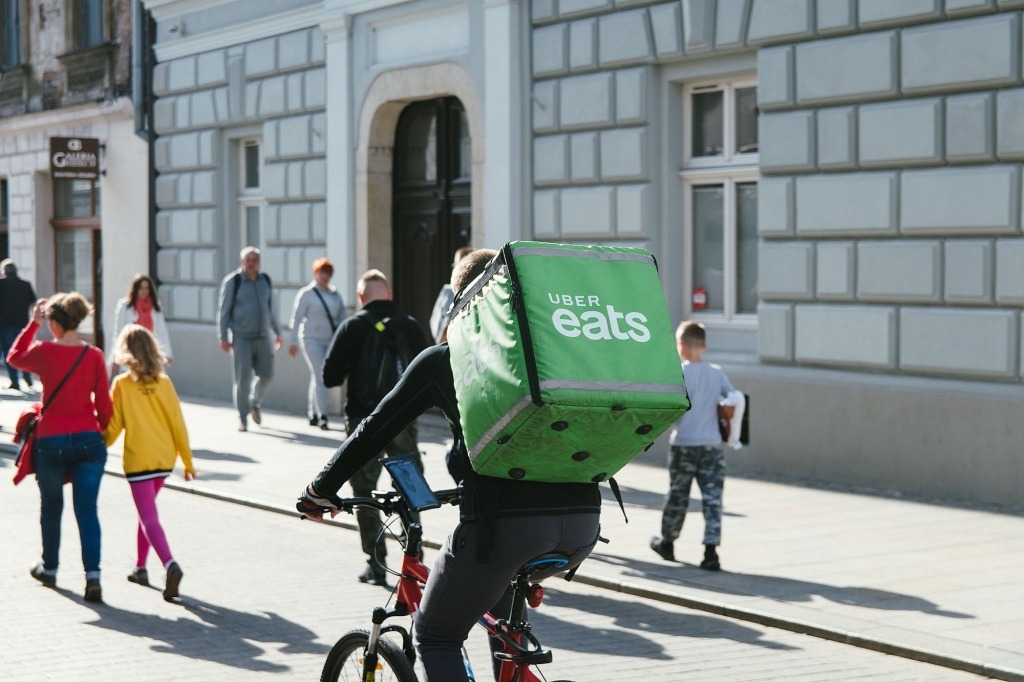Digital platforms profit from the self-exploitation and bogus self-employment of their “employees”. The EU Commission is now proposing guidelines for European countries to prevent this. The aim is to control working conditions with the aim of employing suppliers and other bogus self-employed workers.
What is the problem? – Bogus self-employment and self-exploitation
Precarious working conditions, no planning security, health risks, and stress, stress, stress! They rush from A to B every day and hardly have time to go to the toilet in between. They bring us our parcels, our food and drive us home at night because taxis are too expensive. They are self-employed and work for digital platforms and have one thing in common above all: they have hardly any rights.
Digital platforms: The fairy tale of the intermediaries
Digital platforms like Uber, Mjam, and Deliveroo employ self-employed people and bring them together with potential customers. They are intermediaries, not employers. They emphasize this again and again. They do this because if they were employers, they would have to take care of the health and safety of their employees. They would have to pay the minimum wage and comply with the labor laws in force in the EU. But they don’t – at least not yet.

“The digital economy is often presented as the economy of the future. There is no doubt that it offers companies new perspectives, but also at the expense of some workers,” says Aude Cefaliello, a researcher at the European Trade Union Institute (ETUI).
The digital boss: an algorithm
In fact, the self-employed are employees. They report to a digital boss: an algorithm that monitors them and evaluates their performance. The most efficient employees are assigned good shifts, the less efficient are sanctioned. The constant comparison builds up pressure and leads to many a risk being taken. Especially in road traffic, this repeatedly leads to stress-related traffic accidents. (https://www.bbc.com/news/technology-45247655)
New EU Commission guidelines: moving away from laissez-faire towards fairness
The EU Commission’s proposals essentially refer to the following 3 points
- Clear criteria as to whether employment exists: The control criteria for employment status should create clarity and enable legal protection. Unlike self-employed workers, employees are entitled to minimum wage, collective bargaining, regulated working hours, pension and paid holidays and sick days.
- Control of working conditions: The use of algorithms should become more transparent. Humans – not digital applications – should control compliance with working conditions. Employees and the self-employed should be able to challenge automated decisions in court in the future.
- Transparency of employment relationships: National authorities have hardly any access to data about the employees of digital platforms – this should change. In future, digital platforms are to disclose information about the people working for them. Digital companies are thus to report their employees to the competent authorities like all other companies.
“The precise definition of the future of work and its social and human dimensions is increasingly at stake”. The EU Commission would do well to define this clearly now, says Silvia Rainone. She researches labor law, digital companies, and social dialogue at the ETUI.
What is important now: Implementation at the national level
If the proposed guidelines are adopted, it will only be the first step towards a fairer future. In principle, however, it is in the hands of the member states to implement them and adapt them if necessary. One thing is certain: digital companies will have to rethink their profitable business model. This does not seem to be in their interest, otherwise, they would have done it long ago.
Photo by Paul Hanaoka on Unsplash